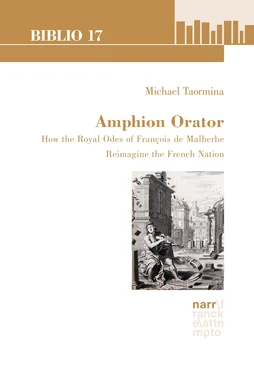Michael Taormina - Amphion Orator
Здесь есть возможность читать онлайн «Michael Taormina - Amphion Orator» — ознакомительный отрывок электронной книги совершенно бесплатно, а после прочтения отрывка купить полную версию. В некоторых случаях можно слушать аудио, скачать через торрент в формате fb2 и присутствует краткое содержание. Жанр: unrecognised, на английском языке. Описание произведения, (предисловие) а так же отзывы посетителей доступны на портале библиотеки ЛибКат.
- Название:Amphion Orator
- Автор:
- Жанр:
- Год:неизвестен
- ISBN:нет данных
- Рейтинг книги:4 / 5. Голосов: 1
-
Избранное:Добавить в избранное
- Отзывы:
-
Ваша оценка:
- 80
- 1
- 2
- 3
- 4
- 5
Amphion Orator: краткое содержание, описание и аннотация
Предлагаем к чтению аннотацию, описание, краткое содержание или предисловие (зависит от того, что написал сам автор книги «Amphion Orator»). Если вы не нашли необходимую информацию о книге — напишите в комментариях, мы постараемся отыскать её.
Amphion Orator — читать онлайн ознакомительный отрывок
Ниже представлен текст книги, разбитый по страницам. Система сохранения места последней прочитанной страницы, позволяет с удобством читать онлайн бесплатно книгу «Amphion Orator», без необходимости каждый раз заново искать на чём Вы остановились. Поставьте закладку, и сможете в любой момент перейти на страницу, на которой закончили чтение.
Интервал:
Закладка:
The broad outlines of patronage described by Shoemaker apply without reservation to the royal odes. “Representations were produced, and power was exerted,” he writes, “through networks of interpersonal relationships that bridged the public and the nonpublic. Writers, historians, artists, architects, and other cultural creators specialized in the business of publicizing—and illustrating—their protectors’ influence. In return, patrons provided publicity for artistic works and gave artists and writers access to social elites where the latter could promote their works” (Shoemaker 17). “This highly personalized and hierarchical system inevitably exerted an influence on literary practice, shaping the exchanges that defined the economic, social, and political value of literature and favoring certain genres and modes of expression. The promise of social advancement created a gradient of desire that generated representations and put them into circulation. In their attempts to win over patrons, writers were drawn into an elitist mode of cultural production and consumption that promoted a hierarchy of literary value based on aristocratic canons of taste” (Shoemaker 19). While the informal arrangements of patronage were governed by verbal contracts based on antiquated feudal ideals, and the relationships were often charged with powerful emotionemotions, it is nevertheless true that self-interest and political calculation inevitably dictated the terms of both sides of the agreement and led to the frequent re-negotiation of loyalties.
The relationship of poet and monarch in the early seventeenth century fits comfortably within Shoemaker’s broad paradigm. “The royal family recruited literary talent both for official propaganda and to provide the scripts for ballets, tournaments, and other courtcourt (royal) festivities” (Shoemaker 30). In theory, a monarch was supposed to be the most distinguished member of the nobilitynobility. Because this was not always the case in fact, monarchs used belles-lettres for self-aggrandizement, reinforcing their social and political elevation over the nobles at courtcourt (royal), especially the great lords, but also shoring up their authority over clergy and magistrates, the other powerful members of the body politicbody politic. Furthermore, given the voluminous and wide diffusion of pamphlet literature, which “sought to reach not only the most reasonable part of the populace, but to interest the masses” (YardeniYardeni, Myriam 44), there is no reason to assume that the impact of belles-lettres was limited to the first two orders of the kingdom. Various poetry anthologies, “the mirrors of their epoch,” edited and published by entrepreneurs with “sharply distinguished literary and esthetic conceptions” (Lafay, “Recueils collectifs” 15), disseminated Malherbe’s royal odes to different sectors of the reading public. Both literary venues, elite and popular, paid homage to the monarch’s preeminence and authority. As Shoemaker notes, this French literature, whether pamphlets or lyriclyric poetry poems, represented an elitist point of view in an elitist mode of expression. Public values were indistinguishable from the elitist values expressed at courtcourt (royal) or in aristocratic circles thanks to the hegemony over cultural production that the monarchy and the nobility exerted through patronage (Shoemaker 17).
Although Shoemaker examines the flourishing of patronage primarily after the reign of Henri IV, he traces the practice’s “contingent rhetorical strategies” and its “personal or particularistic rhetoric” to a foundational text, Budé’s De l’institution du prince [ On the Education of the Prince ], published in 1547 (Shoemaker 19). “The treatise devotes an extended discussion to courtcourt (royal) oratory and lays particular emphasis on the man of letters’ potential role as counselor” (Shoemaker 20). In Shoemaker’s view, the significance of Budé’s treatise derives from its prescient anticipation of a “shift from oratory to counsel” (Shoemaker 20), of “a move away from the traditional public scope of rhetoric” (Shoemaker 20-21). However, this shift would have to wait more than half a century to come about. The contentious political environment that accompanied the Wars of ReligionWars of Religion not only fostered oratory of the sort practiced by Demosthenes and CiceroCicero, but also subsumed the traditional patronage ties of poets under the banner of one sectarian camp or the other. Polemic abounded, and this includes militant poems like Ronsard’s Les Discours (1560-1584) or Agrippa d’Aubigné’s Les Tragiques (1572-1616). Indeed, had it not been for the religious warsWars of Religionreligious warsreligious wars, Catherine de Médicis (1519-1589), “imbued with her ancestors’ ideal that governments and powerful persons should patronize artists and humanists,” would probably have dispensed more royal pensions and commissions (Baumgartner 293). With the return of peace in 1598, the crown and political elites could contemplate a return to the traditional arrangements of literary patronage.
What was unusual, therefore, about Henri IV’s accession was that it marked the end-game to a long and devastating civil war. In the early years of the seventeenth century, Henri IV enjoyed, if not a monopoly over literary patronage, then an unusually broad outpouring of goodwill. Despite isolated Huguenot and LeagueLeaguer opposition, “a kind of unanimity had formed around the idea of celebrating the return to order and peace symbolized by Henri IV” (Chauveau 67). Such strong support for the crown would not be seen again until after the Fronde. If the public and political thrust of the royal odes makes them outliers in the undeniable march toward “the expansion of two parallel realms of personalized discourse: private conversation and secret political counsel” (Shoemaker 22), it is almost certainly because Malherbe was a contemporary of Henri IV and grew up under the same dark clouds of civil conflict. In addition, placed in the clientele of BellegardeBellegarde, Roger de Saint-Lary de Termes, seigneur de, he was invited to stay at courtcourt (royal) when literary patronage had only just recovered and encomiasticencomiumencomiastic poetry speech-making had only just supplanted politicalpolitical oratory. While the outward form of the royal odes—the encomiumencomium—is adapted to the epideicticeloquenceepideictic rhetorical climate instituted by Henri IV in 1603, their impassioned patriotismpatriotism recalls the stirring pleas of royalist pamphlets published in the 1580s and 1590s. Indeed, the eventual divergence of discourse into two personalized realms, reinforced by the vigorous rebirth of patronage culture, may well have doomed the odes to a reception not on their own terms.
Shoemaker rightly insists that all patronage texts—and this includes Malherbe’s royal odes—exhibit a particularistic rhetoric. “This rhetoric was necessarily ad hominem in that the success or failure of a given performance was not a function of swaying the opinions of a broad public, but rather of seducing a single individual” (Shoemaker 23). This observation, while true on its face, requires some qualification in Malherbe’s case. For instance, Malherbe’s first ode, “À la Reine sur sa bienvenue en France” (1600; 1601), which he read aloud at Marie’s reception in Aix, seems to have gone unnoticed by both Marie and Henri. It was Henri’s de facto poet laureate and close friend, Cardinal Du PerronDu Perron, who noticed and recommended Malherbe to the king in 1601, calling him “the best poet in the kingdom” (Adam, Histoire 27). In 1605, Malherbe travelled to Paris in the entourage of his mentor, the Président Du VairDu Vair, and quite unexpectedly received a commission from Henri to compose an ode on the occasion of his imminent campaign in the Limousin—which Malherbe accepted and, upon the king’s return, presented him with “Prière pour le Roi allant en Limousin” (1605; 1607). Clearly, if Malherbe had not succeeded in fitting the ode to his prospective patron, and if the ode had not made a favorable impression on the soldier-king—despite his alleged untutored tastes and loathing for scholars (FumaroliFumaroli, Marc L’Âge 522)—Henri would not have placed Malherbe in the clientele of BellegardeBellegarde, Roger de Saint-Lary de Termes, seigneur de. But it was the educated humanists at courtcourt (royal), Du PerronDu Perron and Du VairDu Vair, who had a high opinion of Malherbe’s poetry and who prepared the poet’s positive reception by the king.
Читать дальшеИнтервал:
Закладка:
Похожие книги на «Amphion Orator»
Представляем Вашему вниманию похожие книги на «Amphion Orator» списком для выбора. Мы отобрали схожую по названию и смыслу литературу в надежде предоставить читателям больше вариантов отыскать новые, интересные, ещё непрочитанные произведения.
Обсуждение, отзывы о книге «Amphion Orator» и просто собственные мнения читателей. Оставьте ваши комментарии, напишите, что Вы думаете о произведении, его смысле или главных героях. Укажите что конкретно понравилось, а что нет, и почему Вы так считаете.












